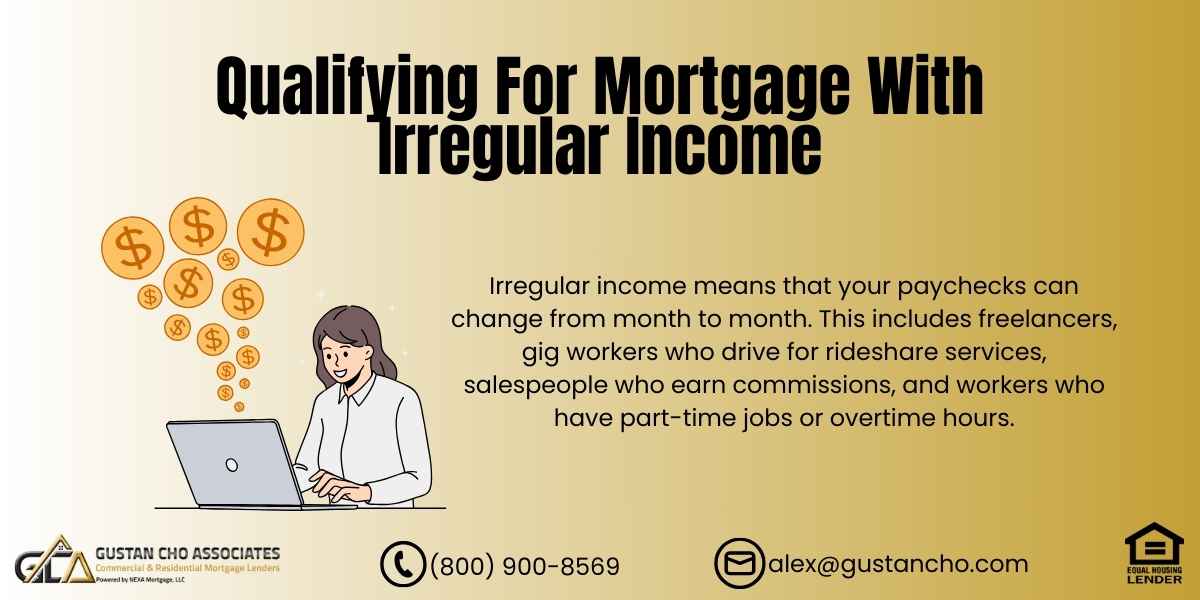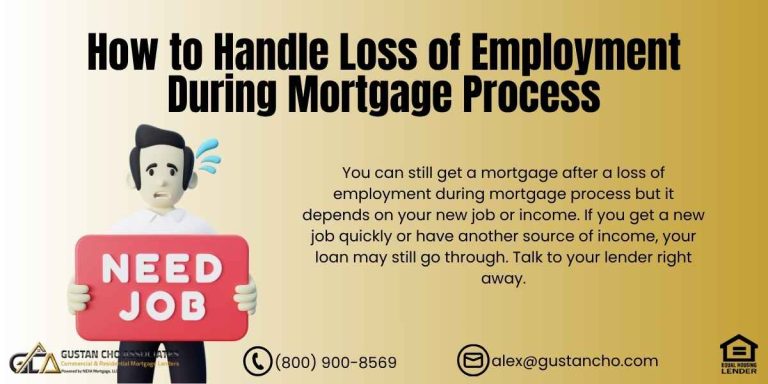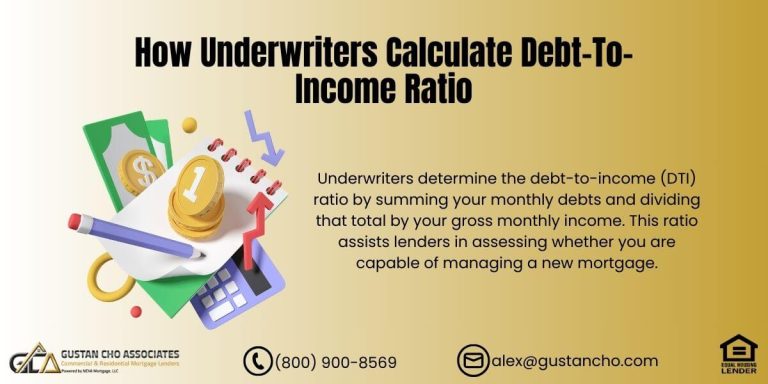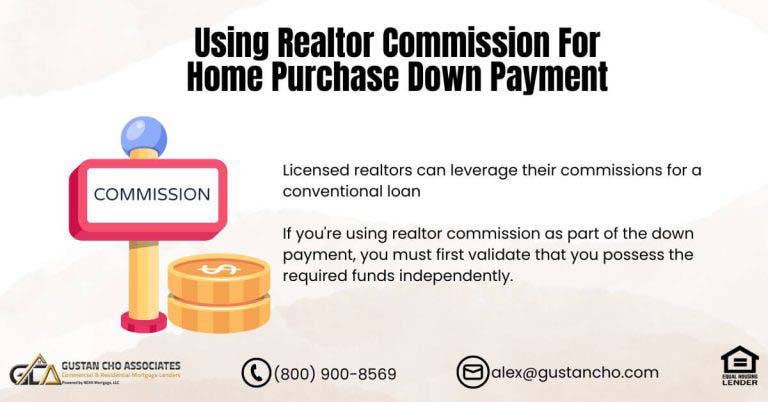Qualifying for Mortgage With Irregular Income: 2025 Guide for Homebuyers
Are you worried that your irregular income might stop you from getting a home loan? You’re not alone. Many self-employed workers, gig economy earners, and even hourly W-2 employees face the same fear.
The good news? Qualifying for mortgage with irregular income is possible—and at Gustan Cho Associates, we help borrowers with unique income situations every day.
This 2025 guide will walk you through how to qualify for a mortgage even if your income changes month to month. We’ll show you what lenders look for, which documents you need, and which loan programs are most flexible.
What Does “Irregular Income” Mean?
Irregular income means that your paychecks can change from month to month. This includes freelancers, gig workers who drive for rideshare services, salespeople who earn commissions, and workers who have part-time jobs or overtime hours. Even seasonal workers and those who sometimes get bonuses fall into this category.
Lenders understand that many people earn money this way, so they look at your overall income patterns to help decide if you can get a mortgage. It’s important to show them your income history to make things easier.
Qualifying for mortgage with irregular income often requires more paperwork, but it’s far from impossible.
Have Irregular Income? You Can Still Qualify for a Mortgage!
Contact us today to learn how we can assist you in securing a loan with your unique income situation.
What Lenders Look For With Irregular Income
Lenders want to make sure you can afford the mortgage and that your income is stable and likely to continue. For borrowers with irregular income, this means:
- A 2-year income history (in most cases)
- Proof the income is ongoing
- No major recent declines in earnings
If you can show steady or rising income, qualifying for mortgage with irregular income becomes much easier.
Income Documentation You’ll Need
Lenders use specific rules to decide how much of your income can count. Here’s what you may need:
For 1099 or Self-Employed Borrowers:
When you’re trying to get a mortgage, and your income is a bit up and down, there are some essential documents you’ll need to gather. First, have your last two years of tax returns to show your earnings. It’s also a good idea to pull together a profit and loss statement for the year so lenders can see your current financial situation. Don’t forget your bank statements that back up the deposits you’ve reported as income. And if you’ve got any 1099 forms, you should include those too. These documents really help lenders get a clearer picture of your income.
For W-2 Employees With Bonus, Overtime, or Part-Time Income:
When qualifying for mortgage with irregular income, like bonuses, overtime, or part-time work, you need to provide some documents. Make sure you have two years of your W-2 forms, which show how much you’ve earned. You will also need 30 days of pay stubs to show your current income. Lastly, you must get a Written Verification of Employment (VOE) from your job. These papers help lenders see if you can afford the mortgage.
Your adjusted gross income (AGI) after deductions is what counts, especially for self-employed borrowers. Lenders may average your income over 24 months.
Can You Qualify With Less Than Two Years of Income?
Qualifying for mortgage with irregular income can be tricky, but it is still possible if you meet certain conditions. For example, lenders may consider your new income if you just started a new job and have a strong offer letter. The same goes for recent graduates who have finished college or technical school. You might also qualify if you have switched from a part-time job to a full-time job.
In these situations, lenders will likely accept your new full-time income if they get a written verification of employment (VOE) and pay stubs. This means that even if your income isn’t steady, there are still ways to show you can handle a mortgage.
How Underwriters View Declining Income
Underwriters want to avoid approving loans for people whose income is dropping. This could be a red flag if your earnings have gone down year after year.
- Lenders may only use your current income if your most recent income is lower than the previous year.
- If your income is increasing or stable, they usually average the last two years.
Qualifying for mortgage with irregular income often depends on whether your income trend is going up or down.
Gaps in Employment? Here’s What to Know
Life can be unpredictable, and sometimes people find themselves out of work. If you are thinking about qualifying for mortgage with employment gaps, don’t worry! If you’ve been unemployed for less than six months, you can qualify after working for 30 days at your new job. This means that you can still buy a home as long as you can show pay stubs from your new job.
If you have been without a job for more than six months, you will need to work at your new job for at least six months before you can qualify. It’s also important to prove that your job will last for at least three more years. Knowing these steps can boost your confidence in buying a home, even if your income isn’t consistent.
Qualifying After Switching Jobs or Career Fields
You don’t have to be with the same employer or in the same career for two whole years. You can still get approved as long as:
- You’ve been in the same line of work or field
- You provide an employment offer letter
- You give a VOE that says your job will continue
Qualifying for mortgage with irregular income is all about proving job stability, even if your employer or pay structure has changed.
Ready to Buy a Home with Irregular Income? We Can Help!
Reach out now to explore your options and find out how we can make homeownership a reality for you.
What About College Graduates With No Work History?
If you just graduated and are thinking about qualifying for mortgage with irregular income, don’t worry! You can still buy a home. To help your chances, show your diploma or transcripts to prove you finished school. Also, provide your job offer letter and pay stubs to show you have a job now. Many lenders understand that attending school full-time is a good way to prepare for a job, so they accept that instead of a normal work history.
Lender Overlays Can Make or Break Your Loan
When qualifying for mortgage with irregular income, some lenders have extra rules, called lender overlays. These rules can make it harder for you to get a loan, even if you meet the basic requirements set by the federal government, like FHA or VA. For example, some lenders might not allow any decrease in your income. In contrast, others may not accept bonuses or overtime unless they are going up.
At Gustan Cho Associates, we don’t have any lender overlays. We stick to the official guidelines without adding extra rules. This is why many people choose us, especially when other lenders turn them down. If you have an irregular income and are worried about getting a mortgage, we can help you through the process.
Best Mortgage Programs for Irregular Income
Some mortgage programs are more flexible than others:
FHA Loans
FHA loans are great because they allow individuals with lower credit ratings to qualify for a mortgage. Plus, they’re cool with using non-traditional income as long as you can back it up with the right paperwork. Making it easier for folks with unique jobs or income sources to get a loan.
VA Loans
VA loans do not have a minimum credit score requirement per VA guidelines. However, many lenders tend to impose additional criteria. Furthermore, there is no maximum debt-to-income (DTI) ratio as long as borrowers comply with the residual income rules set forth by the VA.
Bank Statement Loans (Non-QM)
Bank statement loans are helpful for self-employed people or gig workers. Unlike traditional loans that need documents like tax returns, these loans let borrowers show their bank deposits as proof of income. You don’t have to provide net income amounts or W-2 forms. You may be eligible for this loan if you can submit 12 months of bank statements that demonstrate consistent deposits.
Case Study: From Part-Time to Full-Time
Let’s say you worked part-time, earning $10/hr, for two years and then got promoted to full-time, making $15/hr.
With a VOE and pay stub showing full-time hours, the lender can use $15/hr as your new income. That means your mortgage pre-approval will be based on your current earnings—not your old part-time pay.
Qualifying for mortgage with irregular income doesn’t always mean using the average. Sometimes, your new job gives you a better shot.
Tips to Get Approved With Irregular Income
Here are simple steps to improve your odds:
- Keep good records: Tax returns, pay stubs, bank deposits
- Avoid large income drops: Try to maintain or grow your income
- Work with a lender who understands irregular income
- Consider a co-borrower with a steady income if needed
Most importantly, work with a lender like Gustan Cho Associates, who can manually underwrite tricky income cases.
Why Gustan Cho Associates?
Many lenders follow strict rules that hurt borrowers with non-traditional income. At Gustan Cho Associates:
- We have no lender overlays
- We work with self-employed, gig workers, and freelancers
- We manually underwrite loans others won’t touch
We understand that qualifying for mortgage with irregular income shouldn’t be harder just because you don’t get a steady paycheck. Let us help you get the home loan you deserve.
Get Started Today
Qualifying for mortgage with irregular income can feel overwhelming, but you don’t have to do it alone. Reach out to Gustan Cho Associates, and let’s make homeownership a reality for you—even if your income is anything but ordinary.
If you have any questions about qualifying for mortgage with irregular income or borrowers who need to qualify loans with a lender with no overlays, please contact us at 800-900-8569. Text us for a faster response. Or email us at alex@gustancho.com. The team at Gustan Cho Associates is available 7 days a week, on evenings, weekends, and holidays.
Frequently Asked Questions About Qualifying for Mortgage with Irregular Income:
Q: Can I Qualify for a Mortgage if My Income Goes Up and Down Every Month?
A: Yes! Qualifying for mortgage with irregular income is possible if you can show a steady history and your income is likely to continue. Lenders just need to see that you can afford the payments.
Q: What Counts as Irregular Income When Applying for a Mortgage?
A: Irregular income includes money from gig jobs, commissions, tips, bonuses, part-time work, or self-employment. If your paycheck changes every month, you’re likely qualifying for mortgage with irregular income.
Q: What Documents do I Need to Qualify for a Mortgage with an Irregular Income?
A: You’ll usually need two years of tax returns, recent pay stubs, verification of employment (VOE), and bank statements. These help lenders understand your full income picture.
Q: Can I Still Get a Mortgage if I Just Started a Full-Time Job?
Yes. Qualifying for mortgage with irregular income is still possible if you switched from part-time to full-time or just graduated. A strong offer letter and pay stubs can help you qualify.
5. Will gaps in my work history stop me from getting approved?
A: Not always. If you were unemployed for under six months, 30 days of pay stubs may be enough. For longer gaps, you may need six months on the new job to start qualifying for mortgage with irregular income.
Q: What if My Income Dropped Recently—Can I Still Qualify?
A: It depends. Lenders may use the lower number if your income is declining or ask more questions. Qualifying for mortgage with irregular income works better if your income is stable or rising.
Q: I’m Self-Employed—Can I Get a Mortgage Without W-2s?
A: Yes. Many self-employed borrowers are qualifying for mortgages with irregular income using tax returns, bank statements, and profit-and-loss reports instead of W-2s.
Q: Which Loan is Best for People with Irregular Income?
A: FHA loans, VA loans, and bank statement loans (Non-QM) are great options when qualifying for mortgage with irregular income. They offer more flexibility for different job types and income sources.
Q: I Just Graduated College. Can I Get a Mortgage with no Job History?
A: Yes. Lenders may count your school time as job history. If you have a job offer and proof of income, you may still be qualifying for mortgage with irregular income as a new graduate.
Q: Why Should I Work with Gustan Cho Associates?
A: We specialize in qualifying for mortgages with irregular income. We don’t have overlays; we manually underwrite loans, and we help people that other lenders often turn down.
This blog about “Qualifying For Mortgage With Irregular Income” was updated on April 30th, 2025.
Struggling with Irregular Income? We Can Help You Qualify for a Mortgage
Contact us today for expert guidance on how to get approved despite fluctuating earnings.









